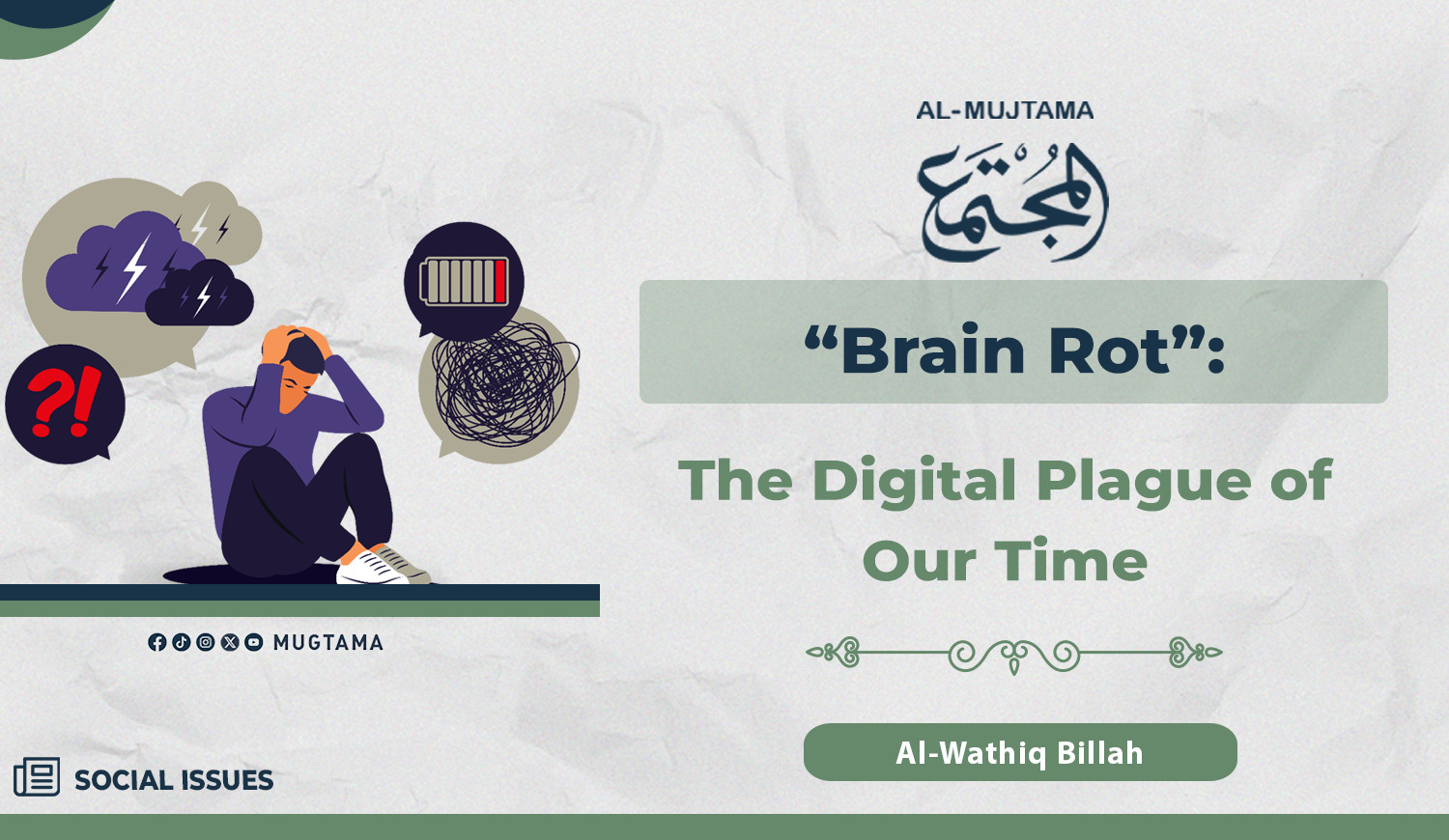“Brain Rot”: The Digital Plague of Our Time

What has happened to this age? Its people have changed, their desires have shifted, and the measures of reason have been overturned—so much so that what makes fools laugh is now considered “thought,” and what kills the intellect is taken as nourishment for the soul?!
Why do we stare at those screens
that produce nothing but nonsense and pour out nothing but foolishness—until
we’ve been struck by a disease unknown to nations before us, never recorded in
the chronicles of our ancestors?
In this era, a strange term has
reached our ears. It is neither from the Arabic tongue nor from the eloquence
of rhetoricians. Yet, it truthfully describes a miserable state and a disease
spreading through the pillars of reason—namely: “brain rot.”
This is a metaphorical expression
to describe our own condition. Scholars have defined it, as quoted in the Oxford
publication, “the supposed deterioration of a person’s mental or intellectual
state, especially viewed as the result of overconsumption of material (now
particularly online content) considered to be trivial or unchallenging. Also:
something characterized as likely to lead to such deterioration.”
It strikes a person when they
excessively consume shallow content—content that neither educates the mind nor
refines character, but instead distracts from both this world and the
Hereafter, leaving the person like one walking through fog, unable to find direction
or stability.
What an astonishment! The first
to mention this term wasn’t from our century, but rather the philosopher-poet
Henry David Thoreau, who penned it in his book Walden in 1854. In it, he
warns of intellectual decline and laments the decay of thought among his
people. So what about us—when screens are opened at every dawn and closed at
every night, and people drink from them as a thirsty man drinks from
seawater—only to grow thirstier?
O children of this generation:
you are a generation of good origin, and the light of hope still burns within
you. Yet you are surrounded by a world of digital seduction that offers you
quick laughter, fragmented knowledge, and aimless images—distracting you from
the joy of reflection, the beauty of thought, and the wonder of creation.
So it is no surprise, then, that
the Oxford institution selected this strange term—brain rot—as
its Word of the Year for 2024, after its usage surged by over 200%! As if
people have awoken to an inner voice screaming: Enough heedlessness—this has
gone too far!
And what are the symptoms of this
affliction? It is that mental laziness, that veil over insight, and that
destructive habit of spending endless hours on funny clips and trivial
scenes—never reading a book, never listening to thought, never tasting real knowledge.
New terms have even emerged among
this generation that stir pity, such as “Skibidi” and “Ohio”—used
to mock content that is utterly void of meaning. Though they may sound
humorous, they expose a deep wound in the soul: senseless content has become
the norm, while anything else is deemed heavy or boring!
Woe to you, O son of Adam! Does
it please you to waste your life in play and nonsense? Do you not possess a
mind with which to reflect, a conscience with which to rise, and a heart that
beats with longing for high meanings and noble goals?
Doctors and mental health
professionals are now warning of the impact of this excessive digital behavior,
describing it as a cause of mental fog, weakened memory, and reduced
concentration. Significant studies have indicated that the overuse of constant screen-scrolling—what
they call “doomscrolling”—leads to mental exhaustion, inner anxiety, and
impaired decision-making skills.
And there is no calamity greater
than to see a youth in the prime of their life, at the peak of mental clarity
and maturity, unable to complete a single thought, uninterested in books,
estranged from essays, yet when called to focus, they turn away and find it burdensome
to think.
So, O you who are reading these
words: know that brain rot is not a disease of bones or tissues—it is an
affliction of souls and minds. Yet its cure lies in your hands: be gentle with
yourself, and give it what it truly deserves—nourishment for thought, tranquility
for the self, and clarity for the spirit.
Return to books. Reflect upon the
words of the wise. Befriend deep ideas as you would your dearest companions.
For the mind will only blossom when watered with the springs of knowledge and
shaded by contemplation.
-------------------------------------------------------------











